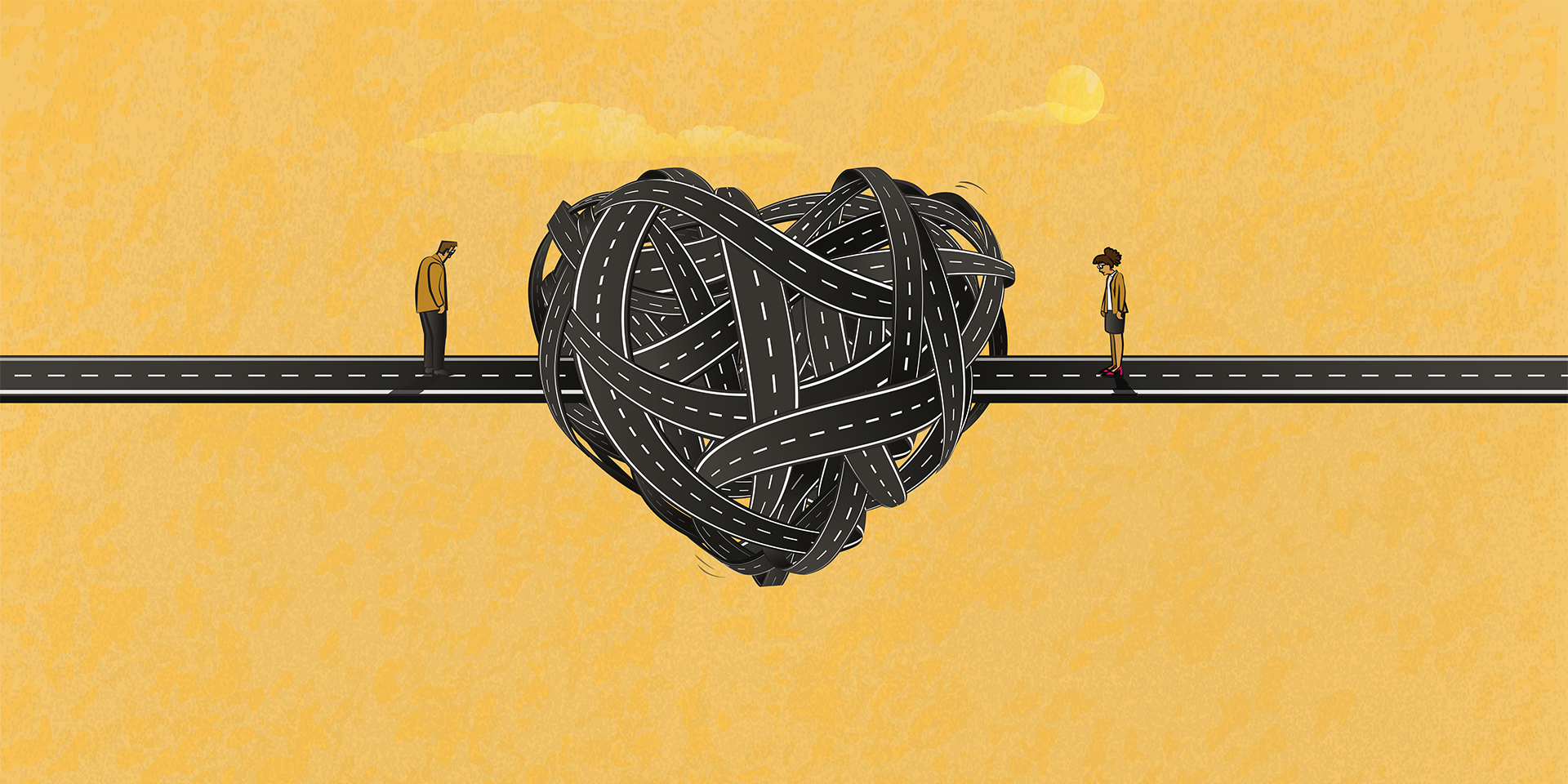When I was a child, I used to take a twig from a locust tree and, plucking the leaves one by one, I would say, She loves me… she loves me not… she loves me… she loves me not. I cannot remember who I was thinking of when I did this; too many years have gone by since then. However, the refrain is still very familiar.
Although they have a number of things in common, friendships and romantic relationships are very different in most aspects. Friendship is perhaps the most difficult relationship to define. Although it is one of the most common type of relationships, researchers have had difficulty defining and explaining the nature of this relationship. Some studies have pointed out the elements which form the basis of a friendship, while others have underlined its voluntary nature or the benefits people get from their relationships.
Friendship is the type of relationship that allows the biggest changes and freedoms. Anyone can become friends with anyone. This kind of relationship, however, also has the lowest degree of commitment. Friendship can end at any moment, for any reason. It may imply different degrees of involvement—from a transient acquaintance, with minimal interaction, to very close connections, in which those involved play an active part in each other’s lives.
A romantic relationship has a much more closed, exclusive system than friendship. In general, when a romantic relationship begins, an official statement (through gestures or other means) is made. This kind of relationship tends to be closer than friendship, but may also involve a lower degree of involvement.
Friendship between two people of the opposite sex is a sensitive subject. The inevitable tensions that appear in such a relationship turn it into something more than a friendship. A study from 2005 show that opposite sex friends invest and are involved more in the relationship than those who are just friends. The same study identifies four types of relationships between opposite sexes:
(a) a romantic relationship (both want their relationship to involve romance);
(b) a strictly platonic relationship (both want their relationship to stay at the level of friendship);
(c) a desired romantic relationship (one wants to take the relationship to a romantic level, but perceives that the other one doesn’t);
(d) a rejected romantic relationship (one does not wish the relationship to go to a romantic level, but perceives that the other does).
The friend zone
What we usually refer to as the friend zone is found between the last two types of relationship. In one of the episodes of the TV show Friends, in 1994, Ross and Joey are talking about Ross’ love life. While Ross is convinced that their friend Rachel is into him and that they could take their relationship to the romantic level anytime, Joey is not so sure about this. Joey uses the term “friend zone” for the first time. The term describes the situation in which one of the two friends develops more intense feelings for the other and wishes that their relationship would grow beyond friendship. Most of the time, the other person is not aware of this wish and feels pretty comfortable with the current status of the relationship. Thus a blockage occurs, an impossibility of going from “just friends” to “exclusive friends”, from friendship to a romantic relationship.
This type of relationship has the characteristics of both types of relationship described above. However, this appears when the two do not agree about their own wishes and these come to be in opposition to each other. After almost 30 years from its first occurrence, the concept is still very popular and is found everywhere on the internet. It has become a joke and the subject of memes, but also a painful experience for many teenagers.
Why is this happening and how can we avoid it
The experience of rejection can be extremely painful and a strong negative reaction is not out of the ordinary. After a breakup, most people experience moderate depressive feelings or even severe ones. To say “I’ve been rejected and it hurts” is one thing; to say “I’ve been friend-zoned and it’s unfair” is another. The first experience is common to all men and arouses compassion and empathy, both for the rejected party and for the one behind the rejection. The second one implies a rejection that causes one of the two to be stuck in an unfair situation, from which he has the right to get out. And this is where the trouble begins.
Most people perceive this situation as an offense, because they assume certain untruths. For example:
1. Friendship is worth less than a romantic relationship. The essence of the friendzone concept is that friendship is inferior to a romantic relationship. But friendship is valuable and can be a very strong relationship.
2. I have the right to a romantic relationship in exchange for friendship. To be kind, friendly or good to someone—that is, to be a friend—does not automatically give you the right to ask for anything.
3. I have the right to have the relationships I want. The idea that we deserve something and should receive what we expect has no place in a relationship. Although rejection hurts, feeling that something you deserved has been taken away, is harmful.
Because all good relationships are built on an advantageous mutual exchange, in this case, one of the two has entered a relationship where this exchange is not balanced. One finds themselves in such a situation for several reasons:
1. Sometimes, the rejected one is simply not that attractive to the other person. By the nature of their attitude they only stir up feelings of attachment, support, and comfort, but not attraction.
2. Other times, one of them chooses the wrong person. Although there are exceptions, people tend to be attracted to people with similar traits, like physical, educational or status-related attractiveness. The “matching hypothesis” was first formulated by Elaine Hatfield (Walster) in 1966 and later supported by a meta-analysis done by Feingold in 1988. Those trying to seduce the wrong person become “just friends”.
3. Sometimes one of them does not know how to require an advantageous mutual exchange to fulfil their needs. Fear, uncertainty, and passivity are reasons why many people seek the friendship of those they are romantically attracted to because it’s much easier and less risky, in the hope that time will change things. This plan rarely works.
4. Other times, one does too much or does not allow the other to invest in the relationship and fall in love. That is, one is too kind and does everything. They make all the concessions and all the sacrifices, they make everything easy for the other. But people appreciate what they get through effort and what they invest in.
Often people make a connection between the friend zone and the twilight zone—a total blockage, with no way out. But there is a way out! And this has to do with communication. If you know you are not ready/looking for a romantic relationship, say it. If you know you want more than friendship, say it. The discussions will not be easy, but telling the truth about what you want is the best thing to do. The ambiguity of intentions and needs, although motivated by good intentions, usually creates more problems than it solves.
For the sake of the relationship’s health, both partners must keep communication open and honest, by expressing their feelings. Unfortunately, this is hard to do if the people involved in the relationship do not understand themselves, each other, and the nature of their relationship.
It’s true that relationships, both friendships and romantic relationships, can be complicated. We do not like uncertainty, and the friend zone is a big source of uncertainty for those experiencing it. But there are solutions for those who want to feel the ground below their feet again: either by rationally analysing the relationship and its realistic conclusions, or by engaging in an open dialogue and preparing for a rejection, understanding that this must not mean more than what it is. It must not generate hard feelings or an identity crisis.
If we can take no for an answer, it means we have discovered how we need to relate to ourselves, and we know who we are and what we’re worth. Furthermore, there is room for friendship even after a delicate and dignified rejection and there are people who can retrospectively confirm that friendships can be preserved even when exiting the friend zone, when those friendships are honest and valuable.



















